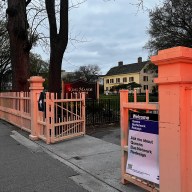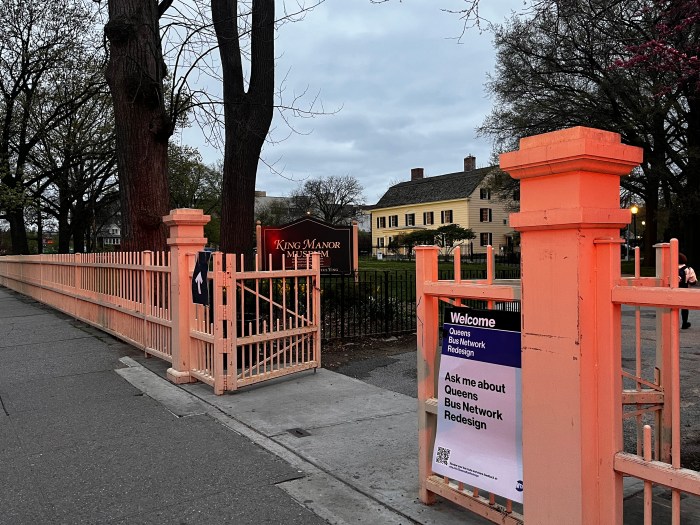By Courtney Dentch
About 150 people gathered at York College in Jamaica March 31 for a town hall meeting on the issues surrounding the waste transfer stations in the primarily black communities of southeast Queens, where garbage is trucked in, compacted and shipped to out-of-state landfills.
“This is a fight against environmental racism,” said Eddie Bautista, director of community planning for the New York Lawyers for Public Interest. “Communities of color for too long have been the target for waste transfer stations, power plants and the like.”
Several waste transfer stations infiltrated neighborhoods in Jamaica, Hollis and Springfield Gardens in the early 1990s, after the city started instituting tipping fees for carting trucks to dump commercial waste in the now-closed Fresh Kills landfill on Staten Island, Bautista said.
The stations, with the constant flow of garbage carried in by 18-wheeler trucks, have soured the quality of life for the people living in the homes adjacent to the sites, said the Federated Civic Associations' Crystal Ervin, who lives two blocks from one station in Jamaica.
“The stench, especially in the summer, makes the air in our homes and parks unbearable,” she said.
When the city shut the Fresh Kills in 2001, private waste transfer stations started handling the majority of the 12 million tons of trash New York produces annually, Bautista said.
“The city does not know what to do with its garbage,” said Assemblyman William Scarborough (D-St. Albans), one of the meeting's organizers. “Very often our communities tend to be the path of least resistance. We have to demand the same quality of life as the rest of the city.”
The trucks also pose a constant threat for residents and children, Ervin said.
“Their dirty emissions put us in serious risk for lung disease,” she said. “The roads are rutted and uneven due to the weight of the trucks using them.”
Councilman Leroy Comrie (D-St. Albans), who also organized the meeting, has been attacking the problem of industrial businesses, such as transfer stations, in residential neighborhoods by targeting trucks and tightening truck route restrictions, he said.
Scarborough blasted enforcement of environmental and health regulations in the transfer stations.
“Enforcement has been absolutely atrocious,” he said. “If these stations are allowed to go in next to homes and you're not enforcing the regulations, you're subjecting people to a terrible quality of life.”
But Steve Radigan of the city Department of Sanitation said the agency has 22 enforcement officers working around the clock to check the stations.
“We take those responsibilities very seriously,” he said. “We're at the facilities at least once a week.”
Southeast Queens residents and the New York Lawyers for Public Interest are pushing for the city to switch to using marine transfer to transport the garbage out of state rather than the land routes used by the existing transfer stations. Mayor Michael Bloomberg has backed this plan, and several outdated stations on the city's shoreline, including one in College Point, will be retrofitted and upgraded to move the trash, Radigan said.
And while this may mean southeast Queens could see less garbage, Bautista urged residents to get involved by educating themselves and expressing their concerns to their elected officials.
“There is stuff falling through the cracks, and you know what that stuff is? Your communities,” he said. “The cracks are huge. The system is completely out of control.”
Reach reporter Courtney Dentch by e-mail at news@timesledger.com, or by phone at 718-229-0300, Ext. 138.































